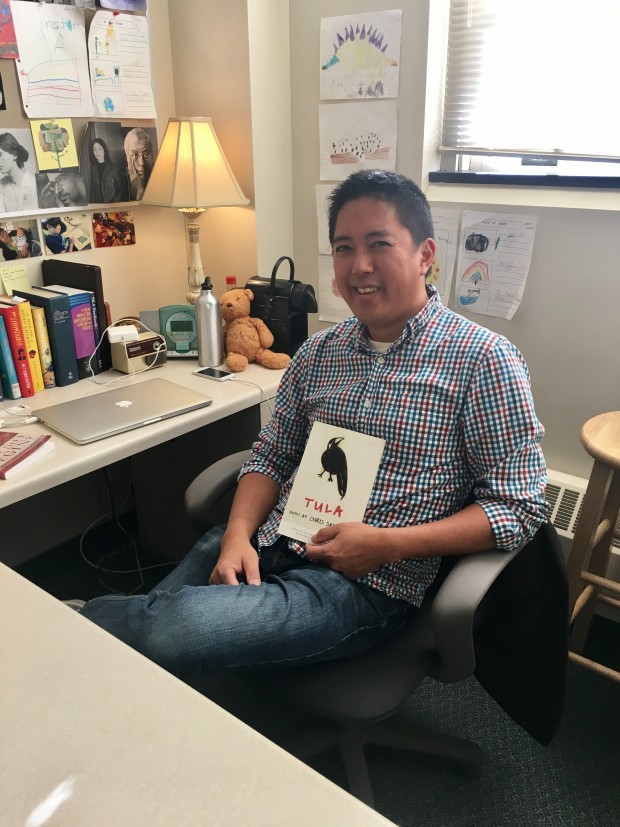
St. Thomas English professor Christopher Santiago wrote a poetry manuscript called “Tula” to honor his family and heritage, and was awarded an honor of his own, the Lindquist & Vennum Prize for Poetry.
“Tula” is more than a collection of poems to Santiago. It reflects Santiago’s Filipino heritage and language and was inspired by family members.
“While I was writing ‘Tula,’ I started thinking about how I don’t speak the language, and a lot of ‘Tula’ has to do with me thinking through kind of being part of this culture that my family is from, but kind of not being a part of it,” Santiago said.
“Tula” won the Lindquist & Vennum Prize for Poetry, which includes publication of the book and a $10,000 prize. For Santiago, winning the prize was a dream come true, but it also hit home for him.
“I lost my mother last year before I moved back here to Minnesota,” Santiago said. “I didn’t realize until after how many of the poems were about her and getting language from her, so when I found out about the prize, it was kind of heartbreaking in that way.”
Santiago’s parents were immigrants from the Philippines and he said that although the language is familiar to him, he does not understand what it means.
The name of the book, “Tula,” is the word for “poem” in Tagalog, a common language spoken in the Philippines.
“One of my teachers when I was an undergraduate student said, “Why don’t you put more actual Tagalog words in there,” and I thought, what if I call it ‘poem,’ what the word for poem is in Tagalog,” Santiago said.
Santiago wanted to connect his writing to not only his family history but also the family members he was unable to meet.
“When my parents left the Philippines, it was a really rough time; there was a dictator who was an awful, awful person. He was putting people in prison who were against him,” Santiago said. “One of my uncles was shot and killed, and the other was put in prison and was finally let go in the U.S. as a refugee.”
Santiago started writing the work when he was an undergraduate student, but since that time, other life changes have shaped the poems in “Tula.” Later in the book, the poems begin to shift and are based off Santiago’s own experience of having a family and kids.
“When I started writing Tula, a lot of the poems were about death. It was pretty grim,” Santiago said. “When I had kids, things shifted for me. I see that in the poems; it became less about myself and more about what the world will be like after me.”
On Nov. 3, Santiago is hosting a book launch and signing for “Tula” at 6 p.m. at the Guthrie Theater. “Tula” will be officially published Dec. 13.
Lydia Lockwood can be reached at lock0052@stthomas.edu
